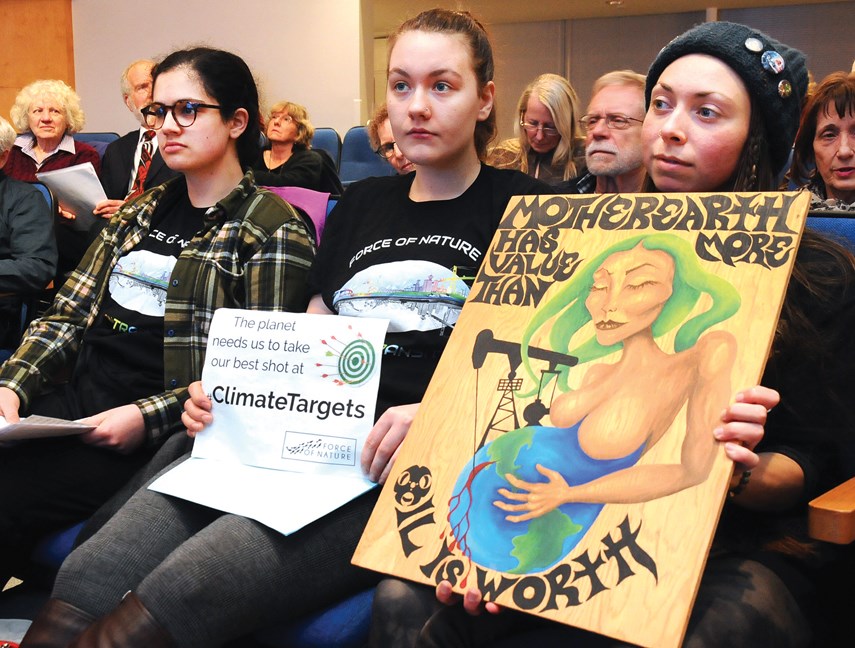The District of North Vancouver is revising its greenhouse gas emissions reduction targets in light of a recent international report calling for limiting global warming to no more than 1.5 C above pre-industrial levels.
Council unanimously voted during Monday’s meeting to increase its reduction targets to 45 per cent below 2010 levels by 2030 and 100 per cent below 2010 levels by 2050, as recommended by the Intergovernmental Panel on Climate Change in a report the UN-backed panel released on global warming in October, 2018.
The new targets, which will replace the emissions reduction targets previously identified by the district as 33 per cent below 2007 levels by 2030 and 80 per cent by 2050, will be included in the upcoming draft Community Energy and Emissions Plan due in March. The plan is intended to guide future actions the district might take in order to reduce energy use and greenhouse gas emissions, according to a staff report.
“These targets, which are based on the most recent, available and accepted science, should be the target adopted by our community,” said Coun. Mathew Bond, adding that the window to act was closing quickly. “Although half a degree doesn’t sound like that much, it actually makes an enormous difference.”
District staff were also directed by council during Monday’s meeting to continue measuring and reporting on the community’s emissions on a regular and frequent basis.
“Regular reporting and measurement allows us to measure the effectiveness of our actions and also allows us to adjust them if they’re not meeting our targets,” said Bond.
Coun. Megan Curren agreed, adding that she was looking forward to the release of the draft Community Energy and Emissions Plan because it would provide the district with real, measurable ideas on how to combat greenhouse gas emissions.
“I think people want to take action,” said Curren.
Climate action groups, including Force of Nature Alliance and the Georgia Strait Alliance, were in attendance during Monday’s meeting, with numerous individuals brandishing placards and signs encouraging council to adopt more stringent climate targets.
A separate agenda item saw a delegation come before council and ask for its support, in the form of a letter drafted by West Coast Environmental Law, which would ask the province to introduce legislation to fine fossil fuel producers for the costs borne by the impacts of climate change.
Council voted to receive the information from the delegation but did not commit the district to sending a letter.
Last week, the City of Vancouver voted to declare climate change “an emergency” and directed staff to look at revising its climate targets in order to achieve net zero carbon emissions by 2050.
District Mayor Mike Little said that while it could be a challenge to look so far into the future, he saw climate change as a call to arms in which new technologies could be the remedy.
“I’m very optimistic with the amount of time and energy and resources that are going into clean technologies in our community.”



